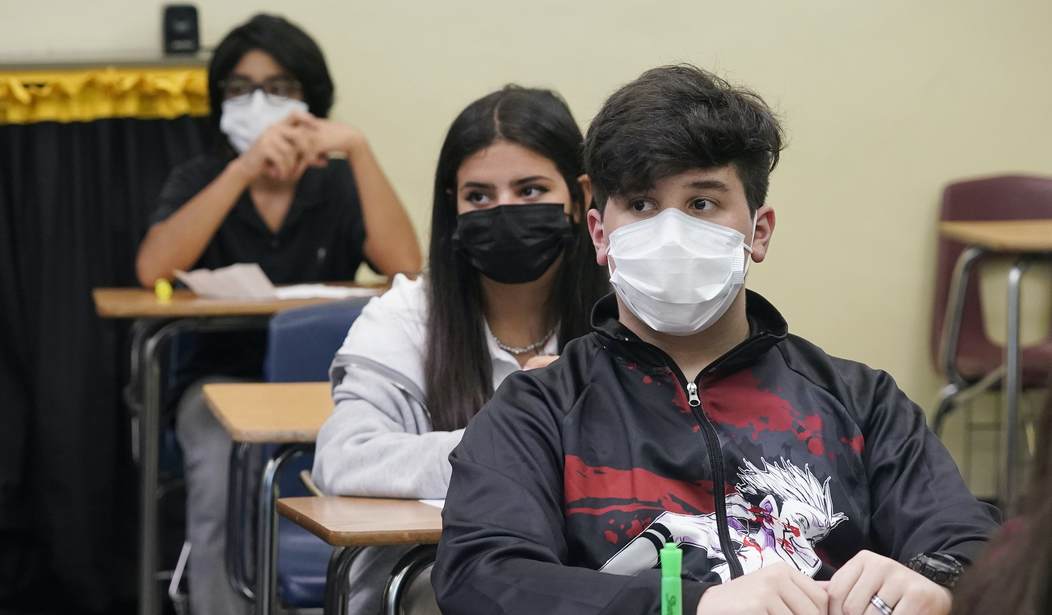Prayer in public schools has been a hot-button issue in the United States ever since the Supreme Court ruled against it in the landmark 1962 decision Engel v. Vitale. But now it’s back, at least in one school district in Newsomland. EdSource reported Monday that California’s “Elk Grove Unified School District began offering culturally appropriate meals and setting aside rooms in many of its middle and high schools for prayer during Muslim holidays in preparation for the additional Afghan refugee students it expects in the next month.”
Ironically, as Daniel Greenfield noted, the Elk Grove Unified School District “became famous for Elk Grove Unified School District v. Newdow, in which an atheist sued the school because the Pledge of Allegiance includes the word, ‘Under God’. The case was an awkward mess that went to the Supreme Court, but should never have gotten that far and ended up being tossed out because Newdow didn’t actually have custody of his daughter.”
There was, however, a case in Texas in 2017 that establishes an important precedent for what Elk Grove Unified School District is doing for Afghan evacuee students now. Liberty High School in Frisco, Texas, established a prayer room for Muslim students, drawing a rebuke from Texas Deputy Attorney General Andrew Leonie, who said: “Liberty High School’s policy should be neutral toward religion. However, it appears that students are being treated different based on their religious beliefs. Such a practice, of course, is irreconcilable with our nation’s enduring commitment to religious liberty.”
Indeed. One parent put it this way at a Frisco school board meeting in 2017: “Liberty High School is not a mosque. It’s not a synagogue. It’s not a tabernacle. It’s not a temple. It’s not a church. It is a school. It is a public school supported by taxpayers for the purpose of educating our children.”
However, Liberty High was able to assuage concerns. Several weeks after Leonie’s statement, Marc Rylander, director of communications for the Texas attorney general’s office, issued another statement, saying: “We are grateful for Frisco ISD’s prompt response and have been in contact with their attorneys. They assured us today that students of all faith, or no faith, may now use this meeting room during non-instructional time on a first-come, first-served basis for student-led activities. Religious liberty is a cornerstone of our society and we are glad that students at Frisco ISD may practice their faith in accordance with their beliefs.”
A first-come, first-served basis? So what would happen if a group of non-Muslim students arrived in the room ahead of the Muslims? How would Liberty High officials deal with the conflict? Alas, neither Rylander nor Frisco school district officials offered an answer to that. However, Joy Baskin, director of legal services with the Texas Association of School Boards, did explain that everything was being done within Constitutional grounds because it was voluntary and organized by the students themselves: “You may hear it said sometimes that prayer’s been kicked out of public schools. In fact, what has been determined by the courts is that schools can’t compel prayer.” She added: “It’s a concept that courts have looked at for many years. It’s called ‘release time,’ and it’s the idea that in order to follow a tenet of faith, the student is briefly excused. It’s an opportunity to have an excused absence in order to follow a tenet of faith.”
Related: A Deserved ‘Moment of Truth’ for Public Schools as a Record Number of Parents Opt Out
Well, all right. The problem with this was that only one faith was actually being followed. While students of any faith may have been allowed to attend, what was being conducted in the Liberty High prayer room was Islamic prayer. There was no Christian prayer room, or Jewish prayer room, or Hindu or Buddhist prayer room at Liberty High School. Will there be prayer rooms set aside for students of other faiths in the Elk Grove Unified School District? Will Muslim students be excused from classes at prescribed Islamic prayer times? Will other students be similarly excused from class for their own prayer or meditation or what have you?
And what will happen if an Afghan student in the Elk Grove Unified School District doesn’t want to pray the obligatory Islamic prayers? After all, these are refugees who are supposed to be fleeing the Taliban. It’s conceivable that some of them will not want to pray at all, but could find themselves, in their new school in California, in a decidedly Taliban-like atmosphere. Will they be pressured into prayer by the prospect of other Afghan refugee students telling their parents that they skipped prayer? Will school officials pressure them to go to prayers so that the officials can pat themselves on the back for their commitment to diversity and multiculturalism? And what will school authorities do if Christian or other students request a prayer room and some time out of classes, too?
The vibrantly diverse authorities of the Elk Grove Unified School District are likely so focused on demonstrating their commitment to multiculturalism and eagerness to welcome the refugees that they haven’t fully thought this through. Their Islamic prayer room is likely to create more problems than it solves, but by the time that becomes obvious, it will be far too late, and those responsible, laden with awards and honors, will be enjoying a comfortable retirement. It will be someone else’s mess to straighten out.










Join the conversation as a VIP Member